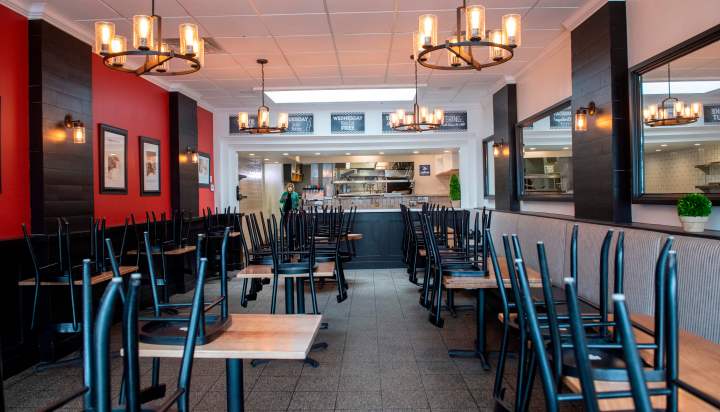
Businesses need staffing strategies to deal with ongoing COVID-19 surges
Businesses need staffing strategies to deal with ongoing COVID-19 surges

New omicron sub-variants are spreading in some parts of the country. And though health officials say they don’t appear to cause more severe disease than previous COVID strains, they could still keep people home from work. The COVID hamster wheel is changing how businesses function – maybe forever.
At this point in the pandemic, David Hoyne, who owns Kitty Hoynes, an Irish pub in Syracuse, New York, has had staff out sick during every COVID wave. Two people have called out in the past month.
“There isn’t any normal anymore. What it is right now is … is what it is,” he said.
To deal with COVID surges, Hoyne is only opening the restaurant five days a week. And he sometimes has to pull tables because he just doesn’t have enough staff to cover a full dining room. He’s hired more people part-time because it gives him more scheduling flexibility when someone calls out.
And if all else fails, “washing dishes sometimes can be very helpful. I mean, wherever the holes are, as an owner, that’s where you are supporting your other staff, you know?” he said.
Hoyne has adapted his business to COVID. And after more than two years of the pandemic, Nicholas Bloom, an economist at Stanford, said businesses should have long-term plans to deal with waves of sick workers.
“We are living in this new world where there’s going to be ups and downs. COVID has been so extreme that it’s forced society and businesses to completely rethink how they operate,” he said.
He said companies already build sick time into their bottom lines. The average worker calls out sick one week a year. But he expects that this number has grown during the pandemic. He said workers should be encouraged to use their sick time, and companies should keep a flexible work-from-home policy.
“Cause then you’re ready in case you need to shut down for a month cause there’s another wave. Or if an individual feels bad they can stay at home, maybe take three, four days off, but then when they’re recovering, may be able to work,” he added.
Of course that’s not an option for lots of industries. Lindsey Cameron, a professor of management at Wharton, said businesses like restaurants, retail stores and airlines should keep masks and regular testing a part of their workplace policies.
“The more you can sort of keep these protections in place, particularly for individuals who have heavy face-to-face, you know, contact, you know the more that you’re gonna help the bottom line,” she said.
Some businesses might also just have to permanently hire more workers to deal with COVID waves. Though, there’s a downside to this.
“Staffing up, that’s going to cost money. Somebody’s gonna have to pay for these increased costs,” she said.
And with inflation perhaps the biggest thing on business owners’ minds right now, they’re unlikely to want to eat that cost, or pass it onto their customers.
There’s a lot happening in the world. Through it all, Marketplace is here for you.
You rely on Marketplace to break down the world’s events and tell you how it affects you in a fact-based, approachable way. We rely on your financial support to keep making that possible.
Your donation today powers the independent journalism that you rely on. For just $5/month, you can help sustain Marketplace so we can keep reporting on the things that matter to you.

















